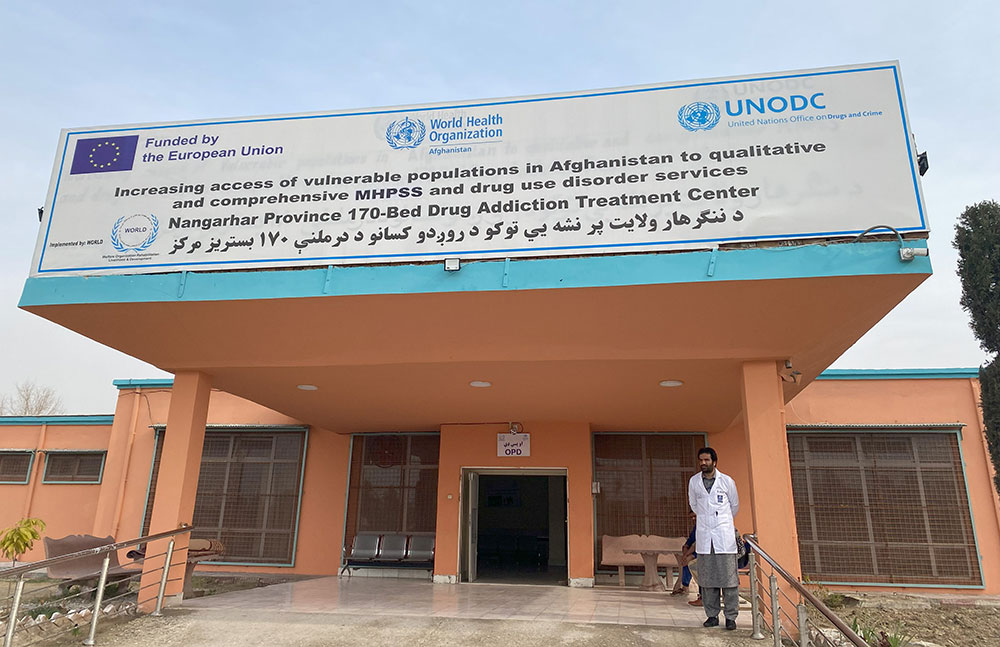
14 March 2024 – Afghanistan has nearly 4 million drug users – roughly 10% of the population. In Nangarhar province, in the east of the country, WHO-operated drug addiction treatment centres are helping affected people to turn their lives around.
Abdul, aged 38 years and from Nangarhar province, has been taking various drugs for the past 10 years. He puts this down to the pressures of poverty, stress and his failure in business. For more than a month now, he has been an inpatient at a drug addiction treatment centre run by WHO in Jalalabad, the provincial capital.
“I am feeling much better,” said Abdul, after spending 35 days at the 150-bed drug addiction treatment centre for adults. The European Union funds the centre, which provides health services to male adults with substance use disorders. A second drug addiction treatment centre in Jalalabad has 20 beds for adolescent males.
“My family is waiting for me to get out of the hospital and join them as a new, healthy person,” said the father of 6 children.
Inpatients at either centre receive medical treatment and psychosocial care, including medication and counselling. In addition, 3 outreach teams managed by WHO provide community-based case-finding, follow-up and relapse prevention services. They also raise awareness of substance use disorders.
“Drugs changed my life completely,” said Abdul. “I have been violent towards my children and my wife. I have become a shame for my entire family.”
He admitted himself to the treatment centre after learning about the available support through one of the outreach teams.
Abdul is convinced that he never wants to return to taking drugs and he plans to draw on medical support even after he has been discharged: “At the centre, I learned that to end drug dependency is only possible if I actively participate in community-based relapse prevention services.”








